Conflict Resolution Skills Teaching Resources
Created by teachers, this collection of resources has been created with teachers — and your students — in mind to help students build the skills they need to handle conflict in the classroom and at home. We know conflict is an unavoidable part of life — even in elementary school — and teaching students explicit conflict management skills and strategies to handle these problems is an important part of creating a safe and supportive school environment.
Looking for some tips on teaching conflict resolution? Read on for a primer from our teacher team.
What Is Conflict Resolution? A Kid-Friendly Definition
Let's start off with a kid-friendly definition to help explain what conflict resolution is to your students.
Conflict resolution is a way to solve problems or disagreements between people in a peaceful and fair way.
Sometimes two people might disagree or have different ideas about something, and conflict resolution helps them find a solution that everyone can agree on. It means finding a way to solve a problem without hurting anyone's feelings or making things worse.
One way to do conflict resolution is to talk calmly and listen to each other's ideas. It's important to try and understand each other's points of view and to respect each other's feelings. When we use conflict resolution, we can solve problems in a way that makes everyone feel happy and respected.
How to Teach Conflict Resolution Skills to Students — Tips From Teachers
Now that you've explained what it is, how do you teach conflict resolution so it will stick and students can employ these skills in the classroom and out?
- Teach active listening. — Help your students understand the importance of listening attentively to others during conflicts. That means learning to listen without interrupting and to ask clarifying questions to show understanding.
- Establish a safe and respectful classroom environment. — Conflict resolution skills are taught best in a space where empathy and respect are fostered. Your students should feel safe expressing their thoughts and concerns without fear of judgment or being ridiculed by their classmates (or you!).
- Explain to your students that they don't have to like everyone in their class or even be friends with all of their classmates. — Let them know, however, that they do have to be kind to everyone! This is a good way to help students recognize that they can co-exist without constant drama.
- Teach students to use "I" statements .— Teaching your students to express their feelings using "I" statements, such as "I feel upset when..." or "I am frustrated because..." helps kids to learn to avoid blaming and encourages personal responsibility for emotions.
- Remain neutral when student conflicts arise. — Even as you incorporate lesson on resolving conflict into your lesson planning, conflicts are bound to arise as one student takes the book from the classroom library that a pal wanted or a group of students play a game at recess without allowing another student to play. When this happens, it's vital to act as a neutral mediator rather than taking sides. Guide your students through the conflict resolution process and help them find common ground.
- Role play conflicts and the resolution process. — Giving students a chance to take part in role-playing activities where they can act out conflicts and practice resolution strategies build their confidence in applying these skills in real-life situations.
Why Is It Important to Teach Conflict Resolution Strategies in the Classroom?
Conflict resolution strategies help our students learn how to communicate effectively and listen to others. By teaching kids how to resolve conflicts in a respectful and peaceful way, we teach students how to build healthy relationships with their classmates, with other school staff and with family members too.
These conflict resolution skills are also an important part of reducing bullying and violence in the school environment and creating a safer, more peaceful learning environment. After all, students who know how to solve problems with their words are less likely to turn to aggression.
- Free Plan
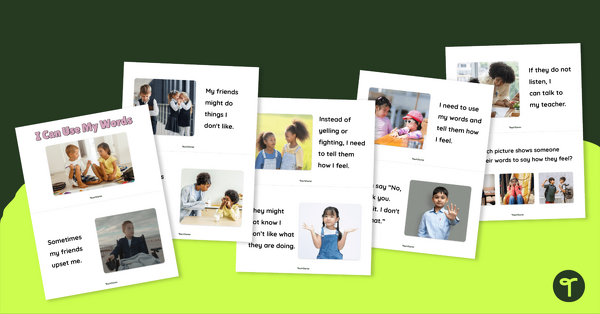
I Can Use My Words Mini-Book
Develop strategies and skills for communicating with others when you don’t like something with this printable mini-book.
- Plus Plan
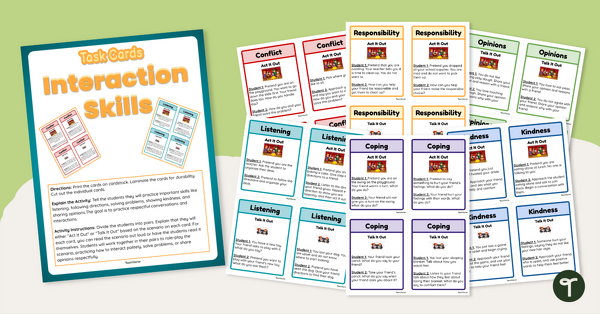
Oral Language Activities
Share these oral language activities with your students to help them practice listening to others, expressing opinions, receiving instructions, and more!
- Plus Plan
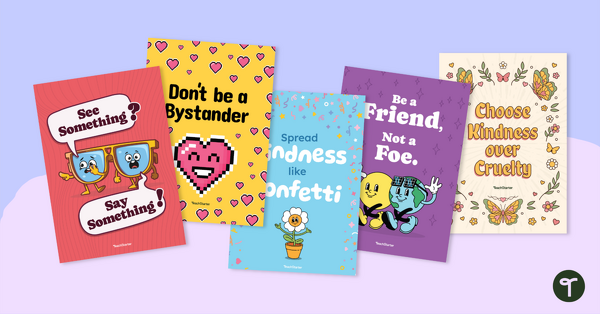
Printable Anti-Bullying Posters
Decorate your classroom and school during National Bullying Prevention Month with printable Anti-Bullying Posters!
- Plus Plan
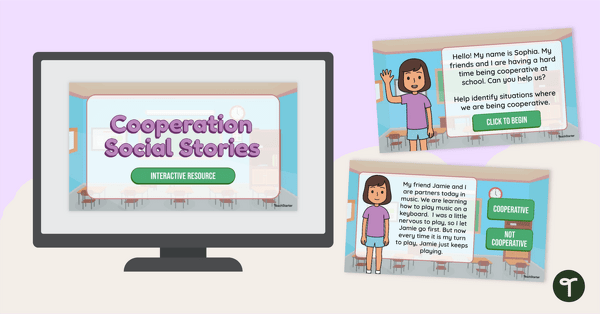
Cooperation Social Stories - Interactive Activity
Help your students differentiate between uncooperative and cooperative behavior in social situations with an interactive activity.
- Plus Plan
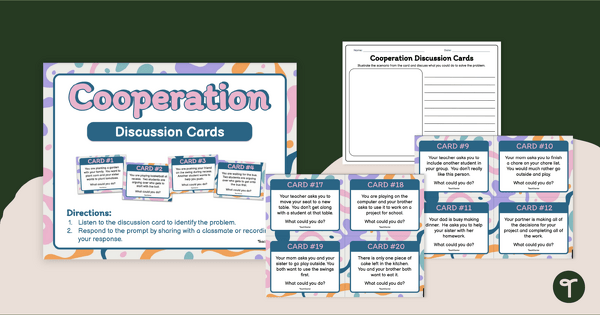
Cooperation Task Cards - Social Skills Activity
Build problem-solving skills and boost cooperative behavior in the classroom with printable discussion cards and cooperation writing opportunities.
- Plus Plan
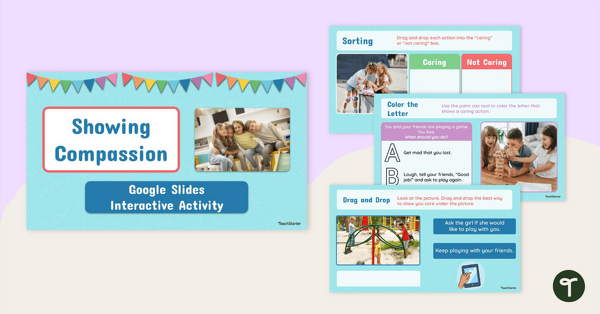
Showing Compassion Google Slides Interactive Activity
Help students understand the importance of caring for others and how to appropriately respond with this interactive activity.
- Plus Plan
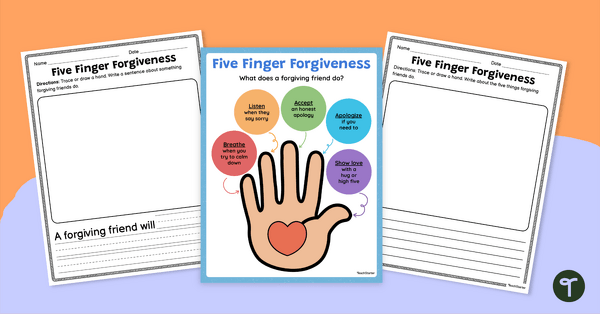
Five Finger Forgiveness – Poster and Writing Activity
Teach your students how to forgive others in order to keep and maintain relationships with this poster and writing prompt.
- Plus Plan
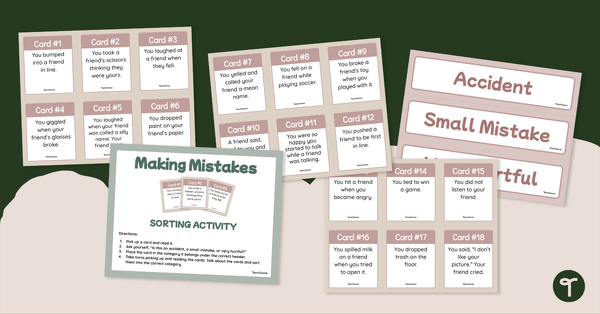
Making Mistakes – Sorting Activity
Help your students recognize different types of mistakes and discuss ways to learn from them with this SEL activity.
- Plus Plan
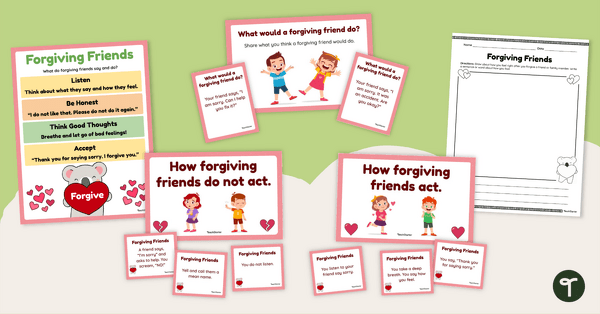
Forgiving Friends – Character Education Activities
Use these character education activities to encourage students to maintain and repair friendships by forgiving others.
- Plus Plan
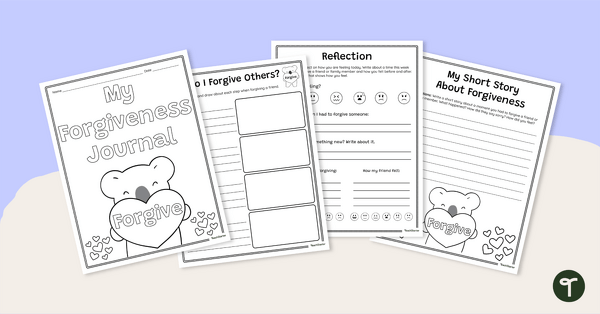
My Forgiveness Journal – SEL Worksheets
Teach students about the importance of forgiving others with this printable forgiveness journal.
- Free Plan
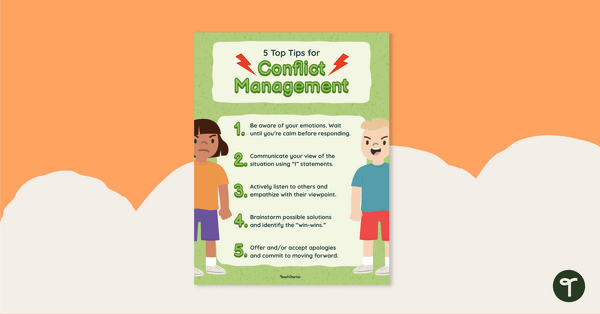
Conflict Resolution Tips - Poster
Display some top tips for solving playground conflicts with this colorful and informative classroom poster.
- Plus Plan
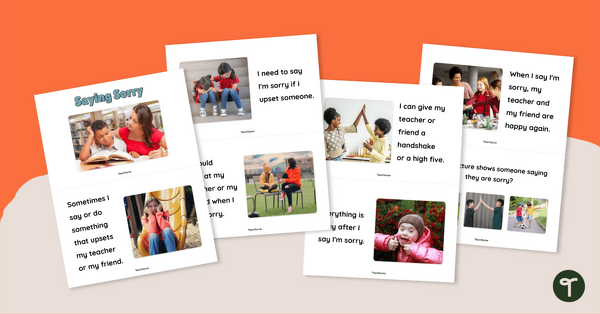
Saying Sorry Mini-Book
Learn how to develop strategies and skills for saying sorry to others with this printable mini-book.
- Plus Plan
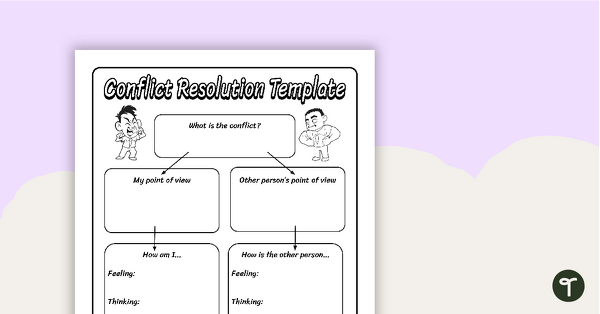
Conflict Resolution Template
Manage classroom and playground conflicts positively and proactively with this conflict resolution template.